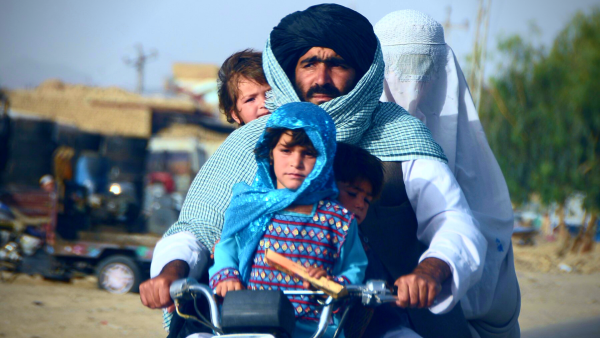Since they re-imposed their control over Afghanistan in August 2021, the Taliban has repeatedly reassured the international community that they have "no plans to repeat past mistakes," pledging to a more modern approach to government, one that respects women and minorities, two groups that were targeted the most during the Taliban's first round of rule in the 1990s.
However, recent weeks have pointed to a dangerous increase in rules against women, including a nationwide mandate on face-covering, also known as the burqa, for all women, and a rule that forbids men and women from dining at the same table in restaurants, including married couples.
Afghan laws issued by the Taliban since August 2021 have also sent home millions of working Afghan women, not permitting them to carry out any economic activities, including a ban on their work in farming.
Moreover, Afghan young girls have been deprived of educational opportunities, since the country's female-only schools have been shut down since March 2022.
A new Taliban decree has forbidden men and women from eating at restaurants together and visiting parks at the same time, even if you’re a married couple.
Afghanistan is facing the most serious women’s rights crisis in the world today.— Shabnam Nasimi (@NasimiShabnam) May 12, 2022
According to the latest decree announced by the Taliban government, full gender segregation will be implemented across the country, banning any man from dining at the same table with any woman, including married couples and family members, such as parents and their children, or siblings.
The news has had many eyebrows raised in shock, as the rule suggests an unusual level of gender-based separation that is now common anywhere else.
1. The Taliban government in Afghanistan has passed a decree to reinstate a burqa mandate for women. The all-encompassing covering must be worn in public areas and government institutions.
— BFM News (@NewsBFM) May 7, 2022
Male guardians of women who do not comply will be punished. pic.twitter.com/fg5oOZZ1JW
For months, Afghan women have protested against the Taliban government, warning that their return to local politics and their control over the government will reverse decades of work that was done during the 2000s and 2010s, aiming to advance women's rights in the Muslim-majority country, as it recovered the negative consequences of the Taliban's oppressive rule prior to 2001.







